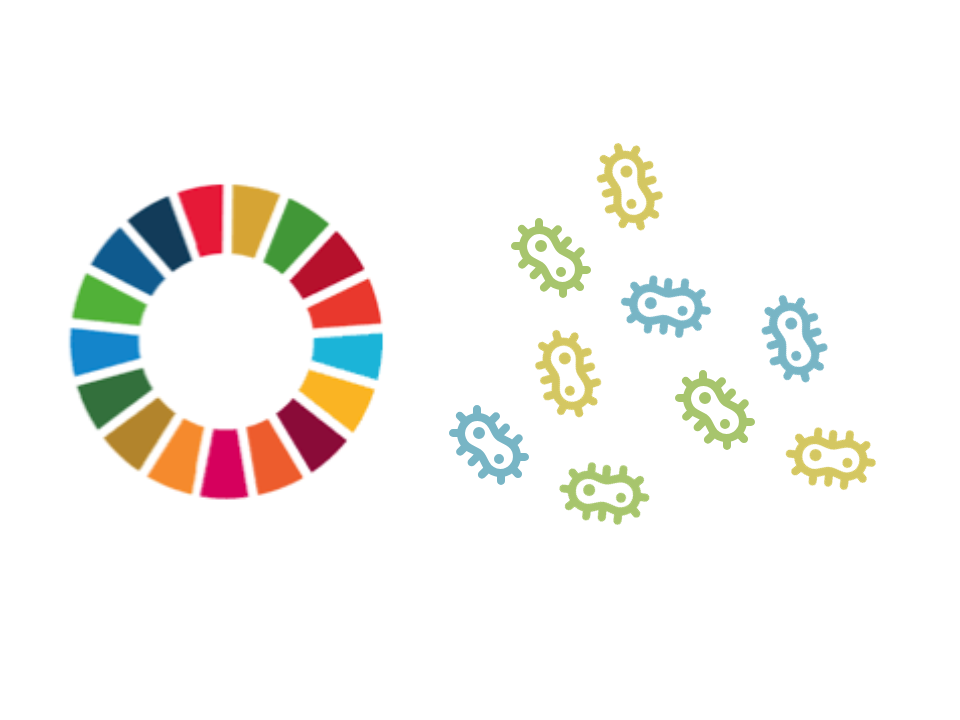Pick Up
1107. Microbes, Planetary Health, SDGs

1107. Microbes, Planetary Health, SDGs
Microorganisms such as bacteria, archaea, viruses, fungi and protists are essential to life on Earth and the functioning of the biosphere. The paper, published in the journal Cell, discusses the main role of microbes in achieving the United Nations Sustainable Development Goals (SDGs) and highlights recent advances in microbial research and technology that will facilitate the transition to a sustainable future.
Given the central role of microorganisms in the biochemical processing of elements, the synthesis of new materials, the support of human health, and the promotion of life in managed natural landscapes, microbial research and technology are directly or indirectly linked to the achievement of each of the SDGs. More importantly, the ubiquitous and global role that microbes play means that they offer new opportunities to synergistically accelerate progress towards multiple sustainability goals.
Microorganisms play a major role in food production and nutrition, especially in SDG 2. Soil, plant, and animal microorganisms are essential for regulating sustainable food production, reducing waste, and improving food distribution and access, and thus have the potential to significantly reduce these pressures. More effective use of microbial biotechnology in food systems can also help achieve key SDG targets, such as reducing food waste (Goal 12), greenhouse gas emissions (Goal 13) and soil, water, and air pollution (Goals 6, 11, 14, and 15).
Microbial-based methods already offer a promising alternative to the use of synthetic chemicals in food systems (such as pesticides and fertilizers) that are harmful to the environment and human health. For example, microbial inoculations, such as arbuscular mycorrhizal fungi, can help restore soil function and increase plant yield and disease resistance. As climate change and land-use change continue to cause soil degradation around the world, promoting the function of soil microorganisms is becoming increasingly important for plant resilience and access to nutrients.
Microorganisms are also expected to be catalysts in the development of a new circular economy. Renewable feedstocks for this circular economy are equivalent to billions of tonnes of organic waste, including non-edible animal and plant materials and crop residues, as well as municipal and industrial waste. Many of these organic residues are burned as raw materials for thermal power generation, resulting in carbon dioxide emissions and negative impacts such as the accumulation of phosphorus and nitrogen in the environment. In contrast, the circular economy brings value-added goods from these raw materials, which have the potential to provide enormous environmental, economic, and social benefits (Goals 3, 6, 10, 13, 14, 15) due to the large availability of these raw materials in developed and developing regions, while requiring a change in agricultural and industrial practices (Goal 9).
Solutions that enhance microbial emissions of CO2 (carbon dioxide), CH4 (methane) and N2O (nitrous oxide) also have the potential to act as powerful allies in the achievement of Goal 13, Climate Action. Greater understanding and application of microbial ecology, including by manipulating plant-soil-microbial interactions and facilitating net carbon gains by marine primary producers, has the potential to make a significant contribution to improving climate action (Goal 13) and, in turn, to improving organisms in aquatic and terrestrial ecosystems (Goals 14 and 15). Given the multifaceted impacts of climate change on poverty, hunger, healthcare, clean water, and education, microbial-based climate change mitigation solutions have the capacity to contribute to many other SDGs (Goals 1, 2, 3, 4, 6, 10, 11, 16).
By effectively managing microbial health, solutions can be achieved that address multiple sustainability goals, from climate and human health to food and energy production. The new international policy framework should reflect the vital importance of microbes in achieving a sustainable future.
Reference
Thomas W. Crowther et al, Scientists' call to action: Microbes, planetary health, and the Sustainable Development Goals, Cell (2024). https://doi.org/10.1016/j.cell.2024.07.051
Contributor: IIYAMA Miyuki, Information Program
